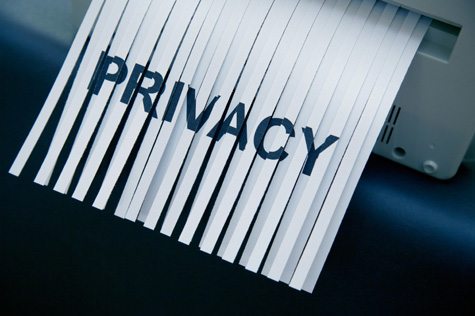Online Privacy is very important in today’s world, but we don’t realize it until something smutty like Ashley Madison hack brings the risk to the table. One can never be 100% secure over the internet, but it makes sense to learn and take basic steps towards it.

Cloak Your Browser
When you browse the internet, a lot of information is collected in the form of history, sessions, and cookies, etc. All this information can easily be exploited by a ne’er-do-well. Hence, your first stop shall be Tor or The Onion Router. The specialty of this browser is that it directs all internet traffic through a network of computers, or “nodes,” encrypting data along the way, which obscures your browsing habits.
Tor is mostly used by whistle-blowers, journalists, and activists who want to anonymously share vital information. Tor Project, a nonprofit organization manages the network for it.
One can also make use of VPNs i.e. Virtual Private Network to mask their IP address like Tor. Using any VPN software, anyone can connect to a remote server on a VPN provider’s network, which changes the user’s IP address and location accordingly.
Just like Tor, it can be used for good or bad. For example, the recent case of Netflix subscribers using VPNs to access geo-restricted content which prompted the service provider to come down hard on them. Still, VPNs are a great tool if privacy is a concern.
Dan Gurghian from ibVPN has something similar to say, “By using a VPN and frequently changing the location, plus browsing the internet in incognito or invisible mode (most browsers have this feature), the amount of data that is collected about you decreases”.
Encrypt Your Conversation
Encryption has been in the spotlight for the last few days because of Apple-FBI fight. It shows that encrypted data is inaccessible to anyone, even law enforcement agencies making it a perfect tool to safeguard email and other valuable assets.
PGP (Pretty Good Privacy) is one such encryption software that scrambles and unscrambles messages that can only be sent and received with the use of public and private keys. At the start, PGP was regarded as very cumbersome for most users, but the tech has gradually become easier to use.
For example, one can use Mailvelope, a browser extension with any mail account (Gmail, Yahoo, etc.) to generate public and private keys. Similarly, there is other extensions and add-on like Secure Gmail By Streak (Chrome Only) and Enigmail (Thunderbird).
Stay Proactive
Last but not least is staying sharp in managing your online security. There are many tools one can use for it and one such tool is DNS Leak Test which checks whether your IP details associated with your browsing are getting leaked online. It’s recommended that you take this test regularly even while using VPNs.
Achieving 100% Security is never possible, but taking the steps mentioned above will ensure basic protection in fending off bad actors over the internet.
